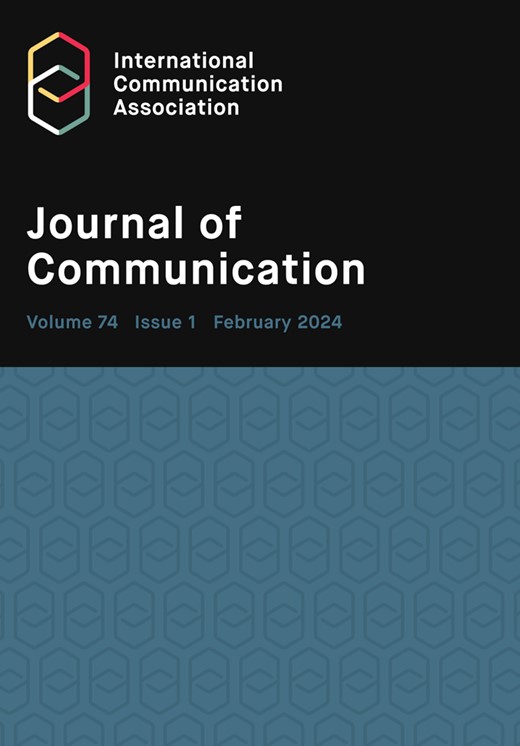How dual-message nature documentaries that portray nature as amazing and threatened affect entertainment experiences and pro-environmental intentions
IF 5.5
1区 文学
Q1 COMMUNICATION
引用次数: 0
Abstract
Nature documentaries are an entertaining and informative genre that appears well-suited to environmental communication. However, producers of nature documentaries face a dilemma: Although they aim to inspire their audiences to act pro-environmentally, they fear ruining viewers’ entertainment experience if they address environmental destruction. Hence, conventional nature documentaries solely portray pristine nature. In contrast, recent nature documentaries have adopted a dual-message strategy by showing beautiful nature footage while also addressing conservation issues. We investigated how these dual-message nature documentaries affect viewers’ hedonic and eudaimonic entertainment experiences and their pro-environmental behavior intentions compared with conventional nature documentaries. We integrated theoretical accounts from entertainment research and environmental psychology and tested our assumptions in three online experiments (total N = 1,362). Our findings suggest that dual-message nature documentaries evoke weaker hedonic experiences than conventional documentaries but stronger eudaimonic experiences (i.e., mixed affect and reflection) that mediate the effect of dual-message documentaries on pro-environmental intentions.将大自然描绘成令人惊叹和受到威胁的双重信息自然纪录片如何影响娱乐体验和环保意愿
自然纪录片是一种集娱乐性和知识性于一体的类型,似乎非常适合环境传播。然而,自然纪录片的制作者面临着一个两难的问题:虽然他们的目标是激励观众采取环保行动,但他们又担心如果讨论环境破坏问题,会破坏观众的娱乐体验。因此,传统的自然纪录片只描绘原始自然。与此相反,近期的自然纪录片采取了双重信息策略,在展示美丽的自然画面的同时,也探讨了保护问题。与传统的自然纪录片相比,我们研究了这些双重信息的自然纪录片如何影响观众的享乐和快乐娱乐体验以及他们的环保行为意向。我们整合了娱乐研究和环境心理学的理论,并通过三个在线实验(总人数 = 1,362)检验了我们的假设。我们的研究结果表明,与传统纪录片相比,双信息自然纪录片唤起的享乐体验较弱,但唤起的美德体验(即混合情感和反思)较强,而美德体验会调节双信息纪录片对亲环境意愿的影响。
本文章由计算机程序翻译,如有差异,请以英文原文为准。
求助全文
约1分钟内获得全文
求助全文
来源期刊

Journal of Communication
COMMUNICATION-
CiteScore
11.60
自引率
5.10%
发文量
41
期刊介绍:
The Journal of Communication, the flagship journal of the International Communication Association, is a vital publication for communication specialists and policymakers alike. Focusing on communication research, practice, policy, and theory, it delivers the latest and most significant findings in communication studies. The journal also includes an extensive book review section and symposia of selected studies on current issues. JoC publishes top-quality scholarship on all aspects of communication, with a particular interest in research that transcends disciplinary and sub-field boundaries.
 求助内容:
求助内容: 应助结果提醒方式:
应助结果提醒方式:


